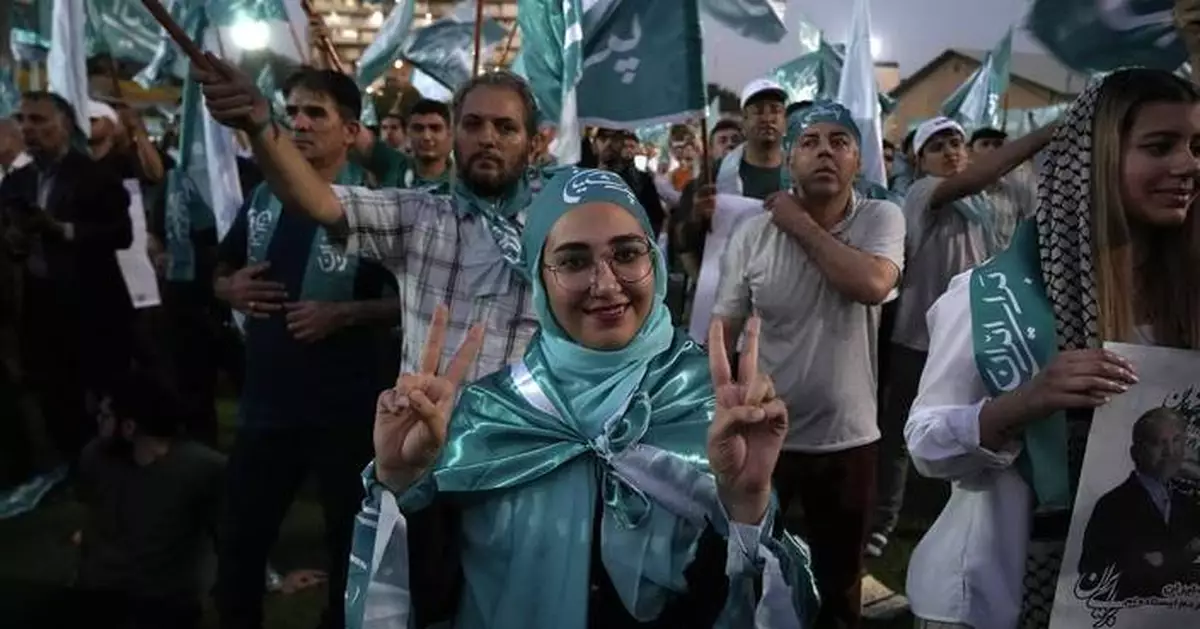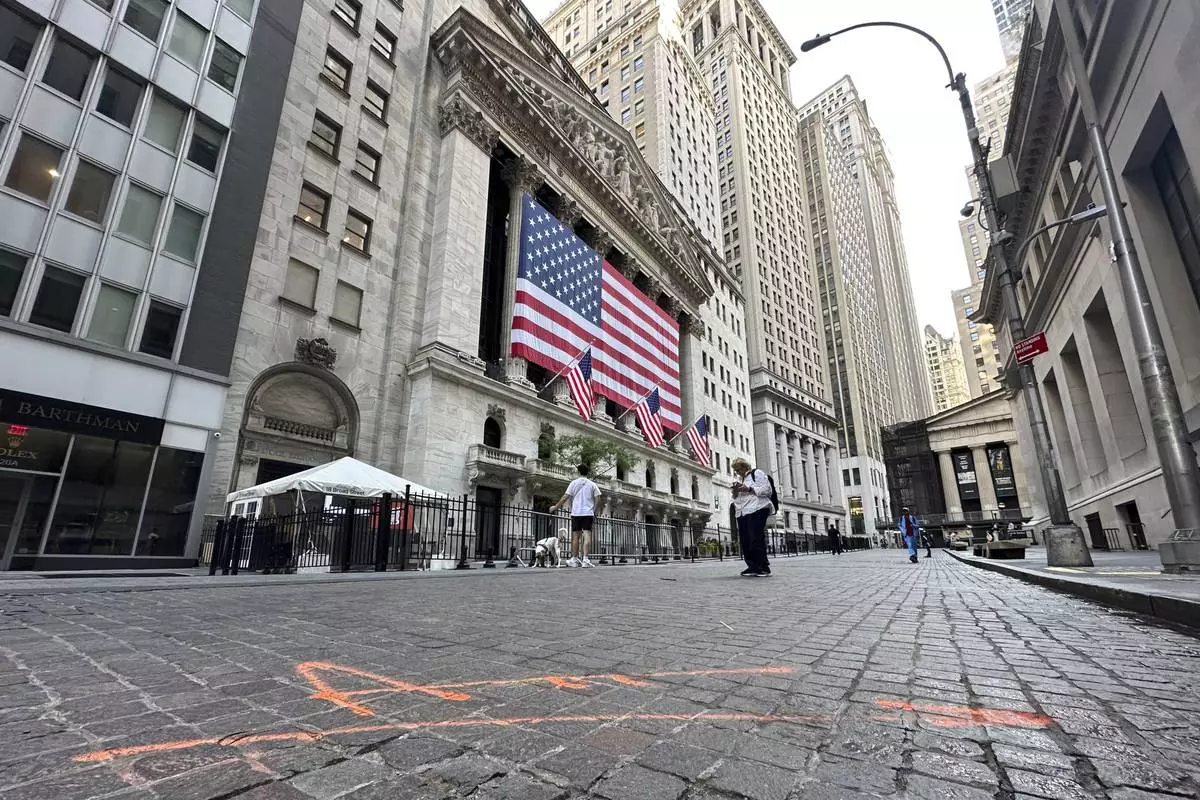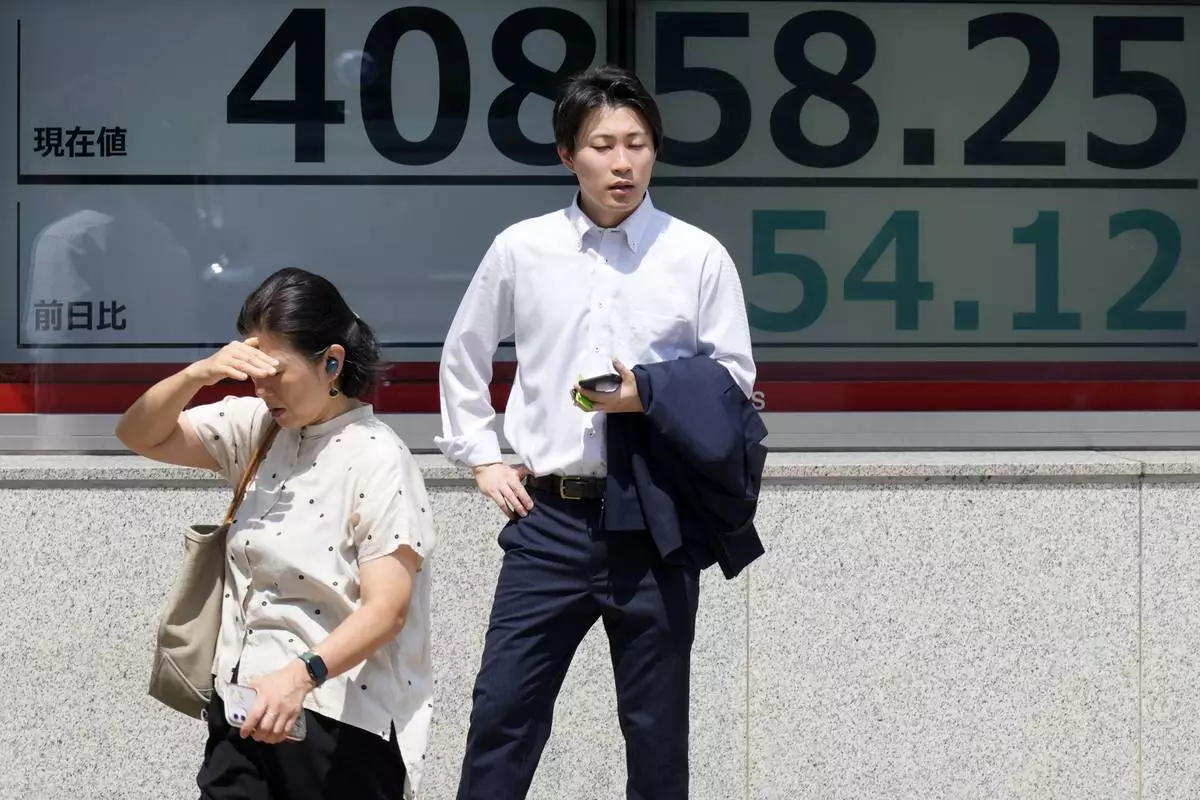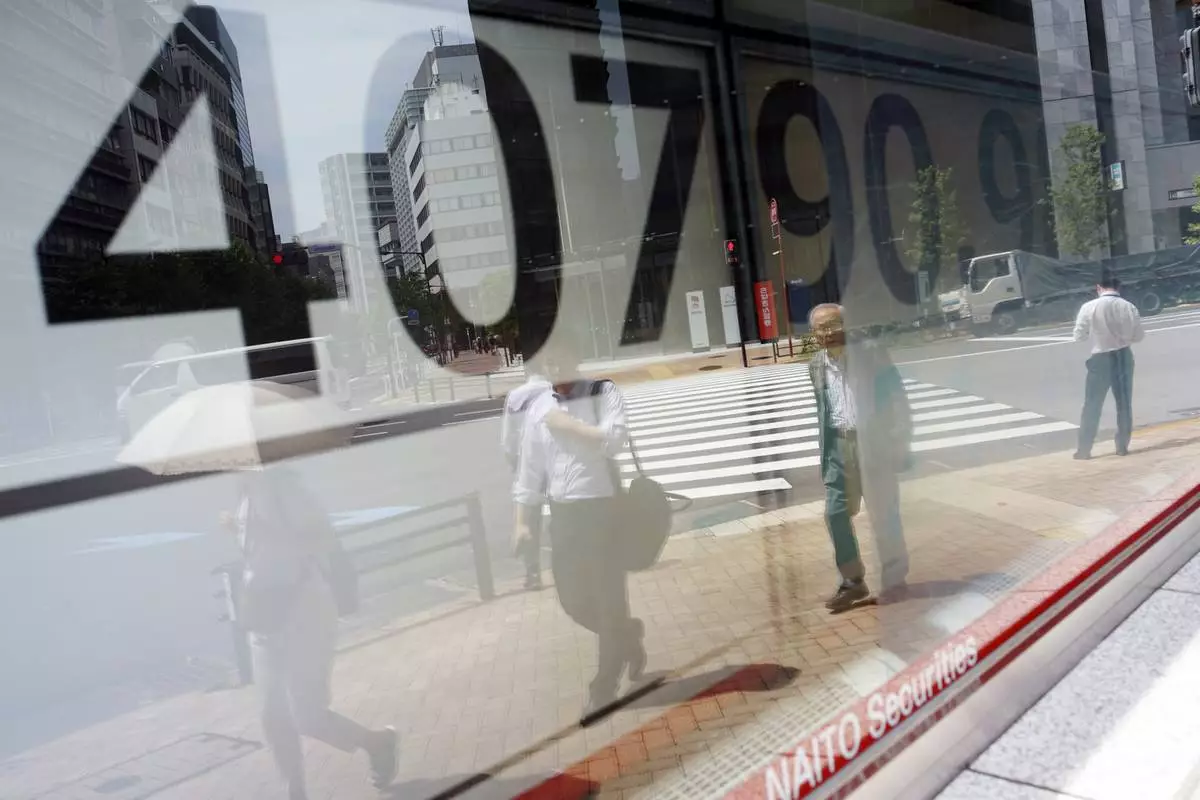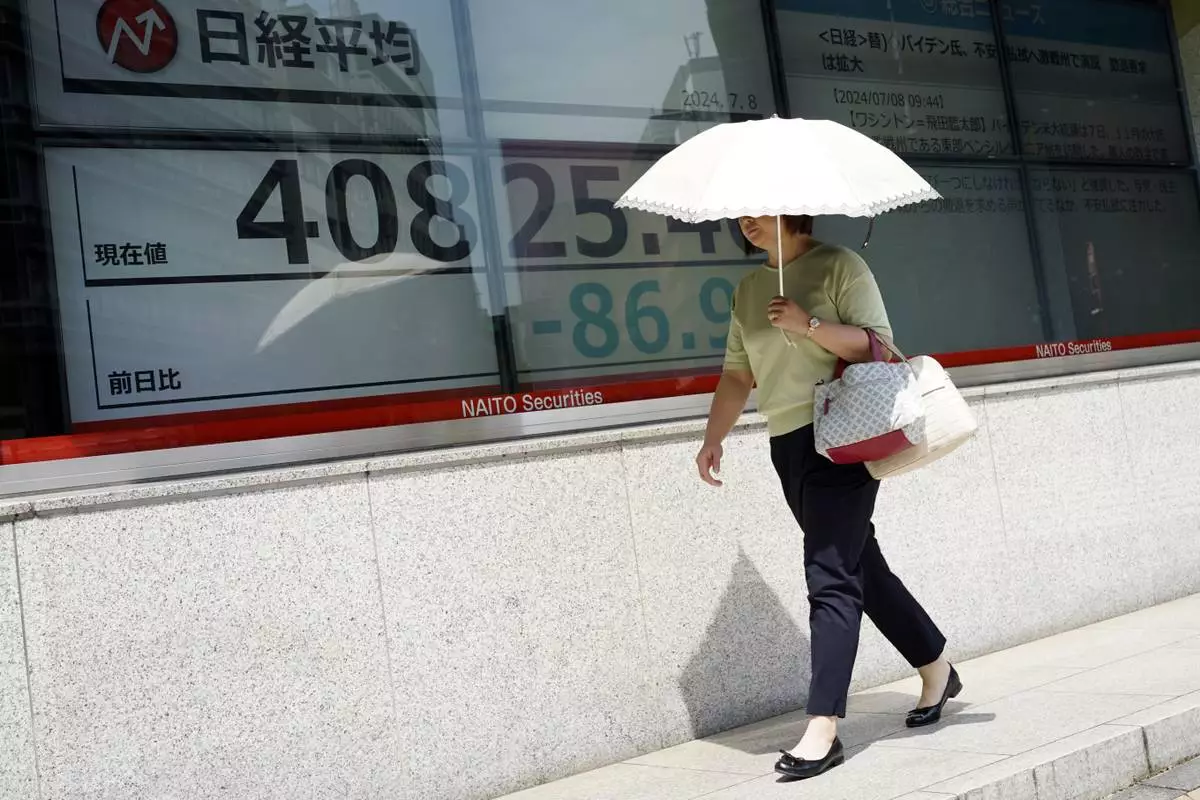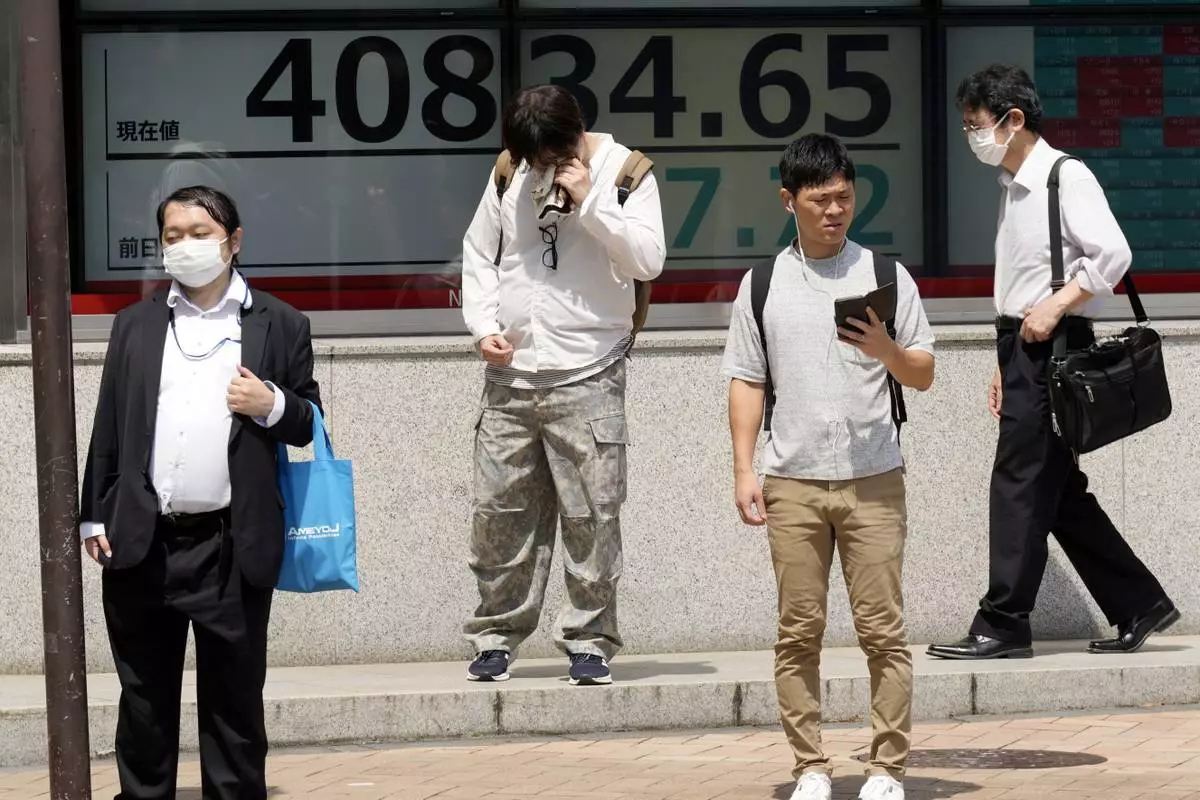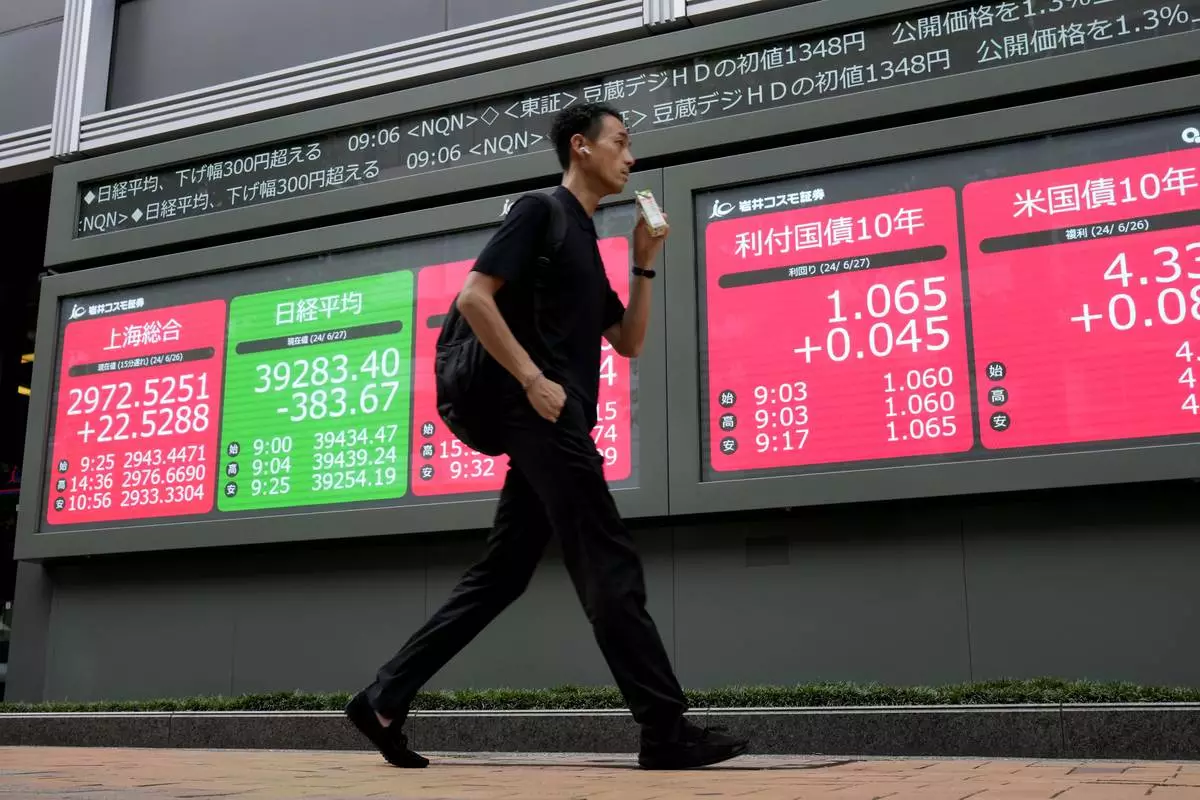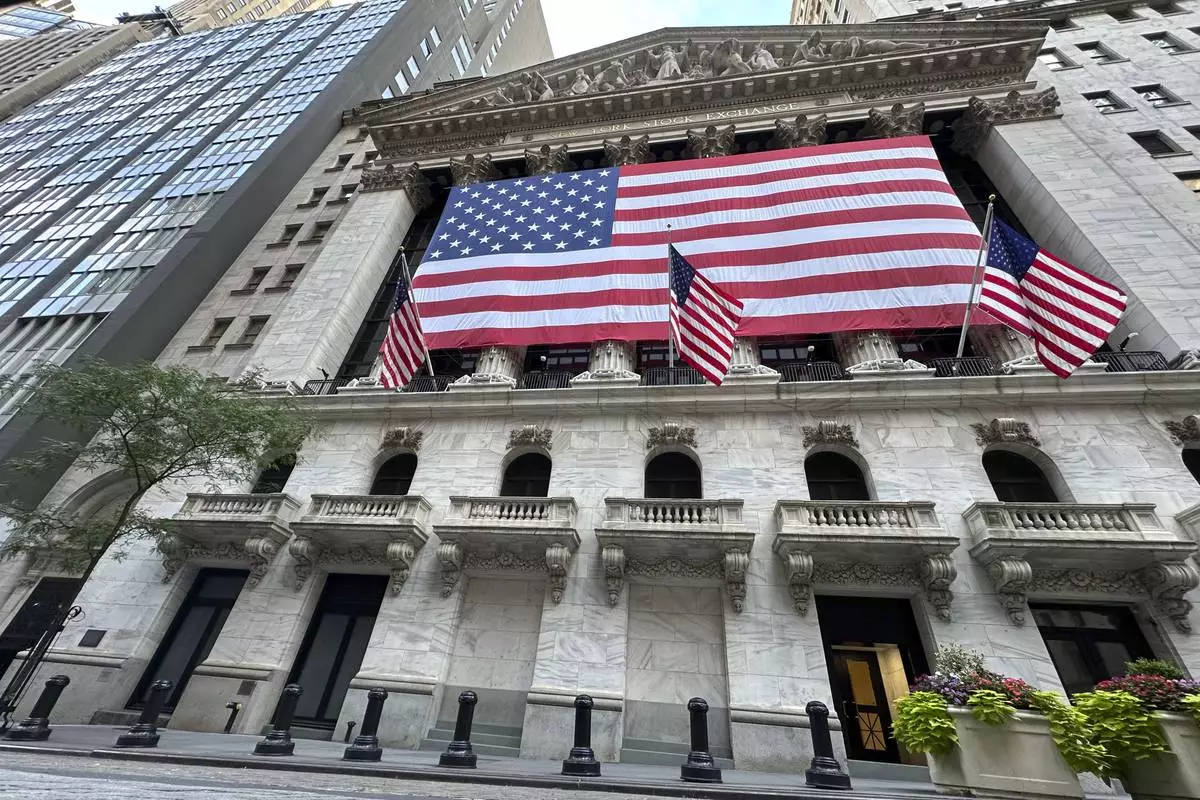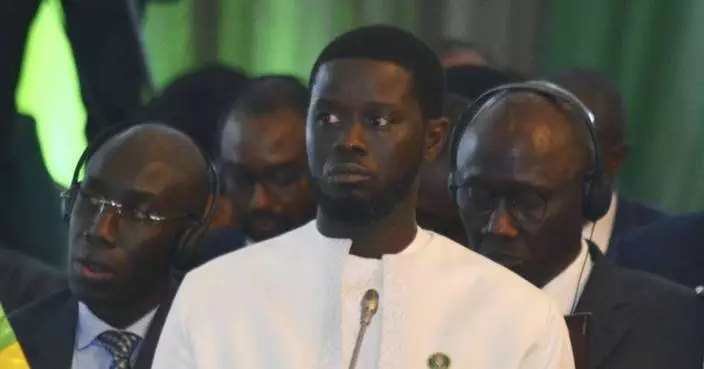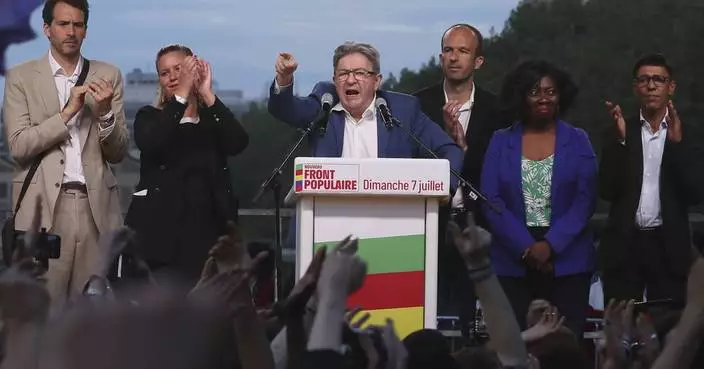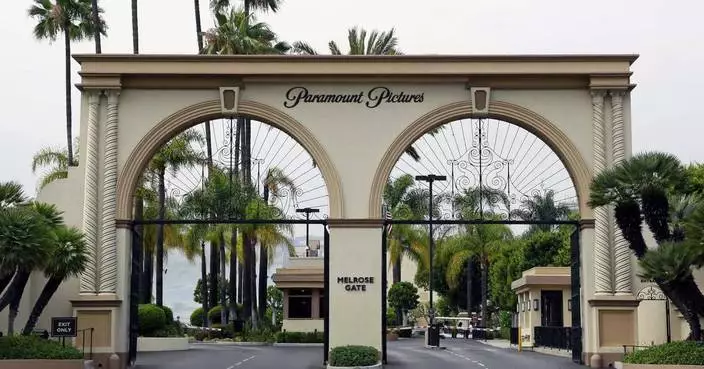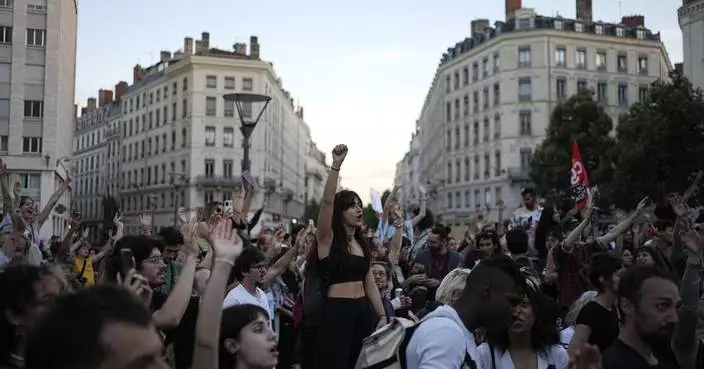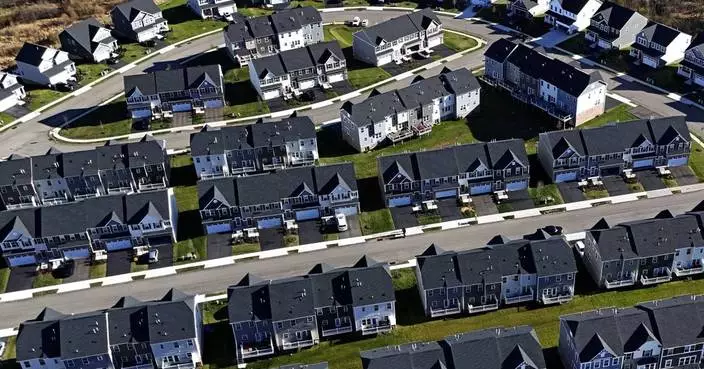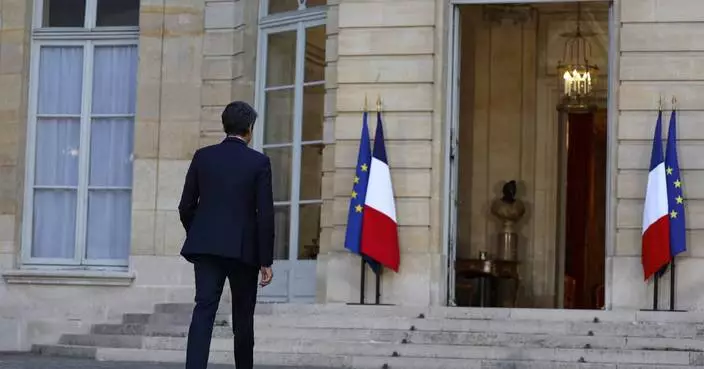Iranians were voting Friday in a runoff election to replace the late President Ebrahim Raisi, who was killed in a May helicopter crash in the country's northwest along with the foreign minister and several other officials.
Voters will choose between hard-line former nuclear negotiator Saeed Jalili and reformist candidate Masoud Pezeshkian, who has aligned himself with those seeking a return to the 2015 nuclear deal with world powers.
Domestic issues that have loomed over the race include a renewed crackdown on mandatory headscarfs for women and a proposed gasoline price hike, as well as years of economic malaise marked by widespread unemployment and high inflation.
After a record-low turnout in the first round of voting June 28, it remains unclear how many Iranians will take part in Friday’s poll. Iranian law requires that a runoff if no one candidate gets more than 50% of all votes cast in the first round.
While 85-year-old Supreme Leader Ayatollah Ali Khamenei has final say on all matters of state, presidents can bend Iran toward confrontation or negotiations with the West.
Here is the latest:
Polls have closed in runoff presidential elections shortly after midnight on Friday across Iran, following two extensions of voting hours.
The country’s state TV said those who were still waiting in line at the polling stations could cast their ballots but no one else would be allowed in after that.
The state-run broadcaster said that counting would begin immediately, with initial results expected on Saturday.
Iranian authorities have extended polling times in the country’s runoff presidential election until midnight, which has become tradition in Iran.
Under Iranian law that’s the limit — polls have to close at midnight as elections should only be held in a single day.
State TV reported that election official Mohsen Eslami announced the extension after more voters went to polling stations to cast ballots after the 6 p.m. official close of voting.
Many Iranians did not vote earlier in the day because of the hot weather and because Friday is a weekend day in Iran.
Such extensions are common for Iranian elections
Both hard-liner Saeed Jalili and reformist Masoud Pezeshkian voted Friday in south Tehran, home to some of the capital’s poorest neighborhoods in an attempt to stir their turnout.
As Jaili walked, his supporters gathered around chanting: “Raisi, your way continues!” It’s a reference to the late hard-line President Ebrahim Raisi, who died in a helicopter crash in May.
Pezeshkian also drew a crowd chanting: “The nation’s hope comes.”
He was accompanied by his ally, former foreign minister, Mohammad Javad Zarif, who helped reach Iran’s 2015 nuclear deal with world powers.
An Associated Press survey of 30 polling stations across Iran’s capital saw a light turnout similar to that of last week, though the presidential election had hours yet to run.
State television in Iran has shown images of modest lines at polling places they were stationed at on Friday. However, many of those visited by the AP saw few voters. Tehran has nearly 7,000 polling places.
A heavy security force presence also could be seen on the streets.
Voter Samira Sharafi, a 34-year-old mother of a toddler, said she voted for reformist Masoud Pezeshkian. She described him as “more experienced” than his hard-line rival, the former nuclear negotiator Saeed Jalili. Sharafi said she had voted for the hard-line parliament speaker Mohammad Bagher Qalibaf lasat week.
At another polling site, 27-year-old Yaghoub Mohammadi said he voted for Jalili, as he had voted in the first round.
“He is clean without dependency on powerful people in the establishment,” Mohammadi said. “He represents those who had no access to power.”
Though many within Iran’s Shiite theocracy had urged people to vote, former hard-line President Mahmoud Ahmadinejad struck a different tone after being barred as a candidate. He had said he didn’t support any candidate and a social media account associated with him said he left Iran on Friday for a trip to Turkey
BAGHDAD — Dozens of voters arrived in minibuses to the Iranian embassy in Baghdad Friday morning, one of six voting centers set up for Iranians in Iraq.
Mohammad Kazem Al-Sadegh, Iran’s ambassador to Iraq said the centers had seen “a good turnout from the Iranian community living in Iraq” in the early morning hours.
“We hope that today the president will be decided on... who has a majority and seeks to serve the public,” he said.
Iraq has a close relationship with its neighbor and Prime Minister Mohammed Shia al-Sudani came to power with the backing of a coalition of factions close to Tehran. However, since the beginning of the Israel-Hamas war in Gaza, Baghdad has struggled to balance its relationship with the United States and Iran, particularly after a group of Iranian-backed Iraqi militias began firing drones at U.S. bases in retaliation for Washington’s support for Israel.
Iranians are again voting at the gravesite of a general slain in a 2020 U.S. drone strike in Iraq.
State television aired images of people lining up to vote at the grave of Revolutionary Guard Gen. Qassem Soleimani in Kerman.
Soleimani, a leader of the Guard’s expeditionary Quds Force, was seen a popular figure seen as a symbol of national resilience in the face of four decades of U.S. pressure.
For the U.S. and Israel, he was a shadowy figure in command of Iran’s proxy forces, responsible for fighters in Syria backing President Bashar Assad and for the deaths of American troops in Iraq.
A U.S. drone strike killed Soleimani, 62, and others as they traveled from Baghdad’s international airport on Jan. 3, 2020.
The Pentagon said then-President Donald Trump ordered the U.S. military to take “decisive defensive action to protect U.S. personnel abroad by killing” a man once referred to by Iran’s Supreme Leader Ayatollah Ali Khamenei as a “living martyr of the revolution.”
Iran’s acting president Mohammad Mokhber said that more people have voted in a presidential runoff than had voted at the same time during the first round of last week, speaking about an hour after polls opened, and said he hoped to see higher turnout overall.
The first round, held June 28, saw the lowest turnout in the country's history, 39.9 percent.
It was not possible to confirm Mokhber’s claim.
Iran’s Supreme Leader Ayatollah Ali Khamenei voted in the country’s runoff election aimed at choosing a new president for the country after forem President Ebrahim Raisi died in a May helicopter crash.
Khamenei urged people to vote and said, "God willing, people will vote and choose the best candidate.”
Last Friday’s vote saw less than 40% turnout.
State television showed people lining up to vote in many cities and towns. There are some 60,000 polling stations and more than 61 million eligible voters in the country of 85 million.
Pezeshkian finished around 10% ahead of Jalili in the first round, though neither received the 50% shared needed to win outright.
Officially, polls are set to remain open until 6 p.m., although Iran usually extends elections until midnight.
Iran has two candidates set to face off on Friday’s runoff presidential election.
One is Saeed Jalili, 58, who served as Iran’s top nuclear negotiator under former President Mahmoud Ahmadinejad from 2007 to 2013. His hard-line vision for Iran has been criticized by opponents as being like the “Taliban” and risks inflaming public tensions after years of economic hardship and mass protests.
The other is Massoud Pezeshkian, 69, who has allied himself with relatively moderate elements of Iran’s political system, including former Foreign Minister Mohammad Javad Zarif, who helped reach Iran’s 2015 nuclear deal with world powers.
Pezeshkian is a heart surgeon and a longtime lawmaker from Tabriz in northwestern Iran. Jalili supporters have criticized Pezeshkian's campaign for fear-mongering, while Khamenei has issued a veiled warning about outreach to the U.S.
Michael Wakin in Dubai, United Arab Emirates, contributed.
Iranian presidents serve four-year terms and are limited to serving two terms. Iran’s president is subordinate to the supreme leader and over the recent years, the supreme leader’s power appears to have grown stronger amid tensions with the West.
However, a president can bend the state’s policies on both domestic issue and foreign affairs. Former President Hassan Rouhani, for example, struck the 2015 nuclear deal with world powers with the blessing of Supreme Leader Ayatollah Ali Khamenei. The hard-line tack taken by the late President Ebrahim Raisi also had Khamenei’s backing.
Iran describes itself as an Islamic Republic.
The Shiite theocracy holds elections and has elected representatives passing laws and governing on behalf of its people, but the unelected supreme leader has the final say on all state matters and the Guardian Council must approve all laws passed by the parliament.
Those who led a protest movement after hard-line President Mahmoud Ahmadinejad’s disputed 2009 re-election remain under house arrest, while security forces answering only to the supreme leader routinely arrest dual nationals and foreigners, using them as pawns in international negotiations. Mass protests in recent years have seen bloody crackdowns on dissent.
Meanwhile, hard-liners now hold all levers of power within the country. The Guardian Council approves all candidates and has never allowed a woman to run for president. It routinely rejects candidates calling for dramatic reform, stifling change.
Follow AP’s coverage of the Iranian presidential election at https://apnews.com/hub/iran.
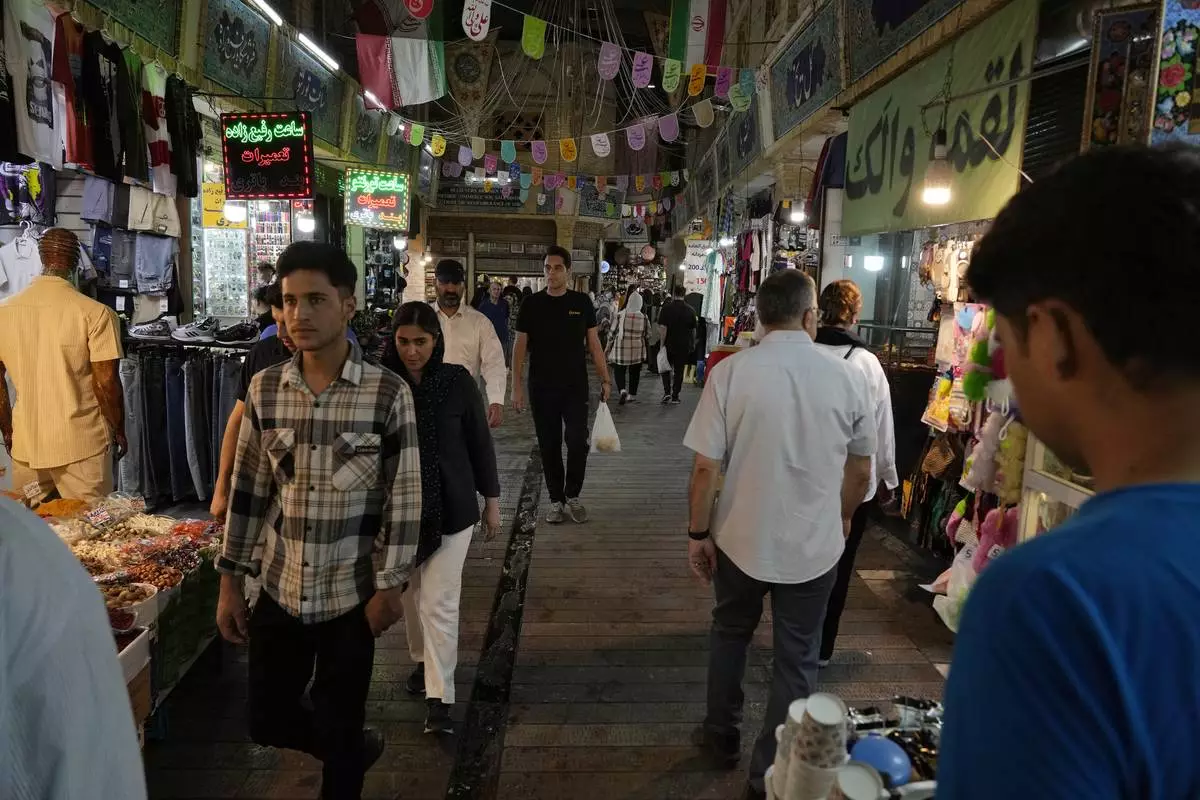
People walk through the Tajrish traditional bazaar in northern Tehran, Iran, Tuesday, July 2, 2024. Comments suggesting that Iran's reformist presidential candidate could increase government-set gasoline prices have raised fears of a repeat of nationwide protests. (AP Photo/Vahid Salemi)
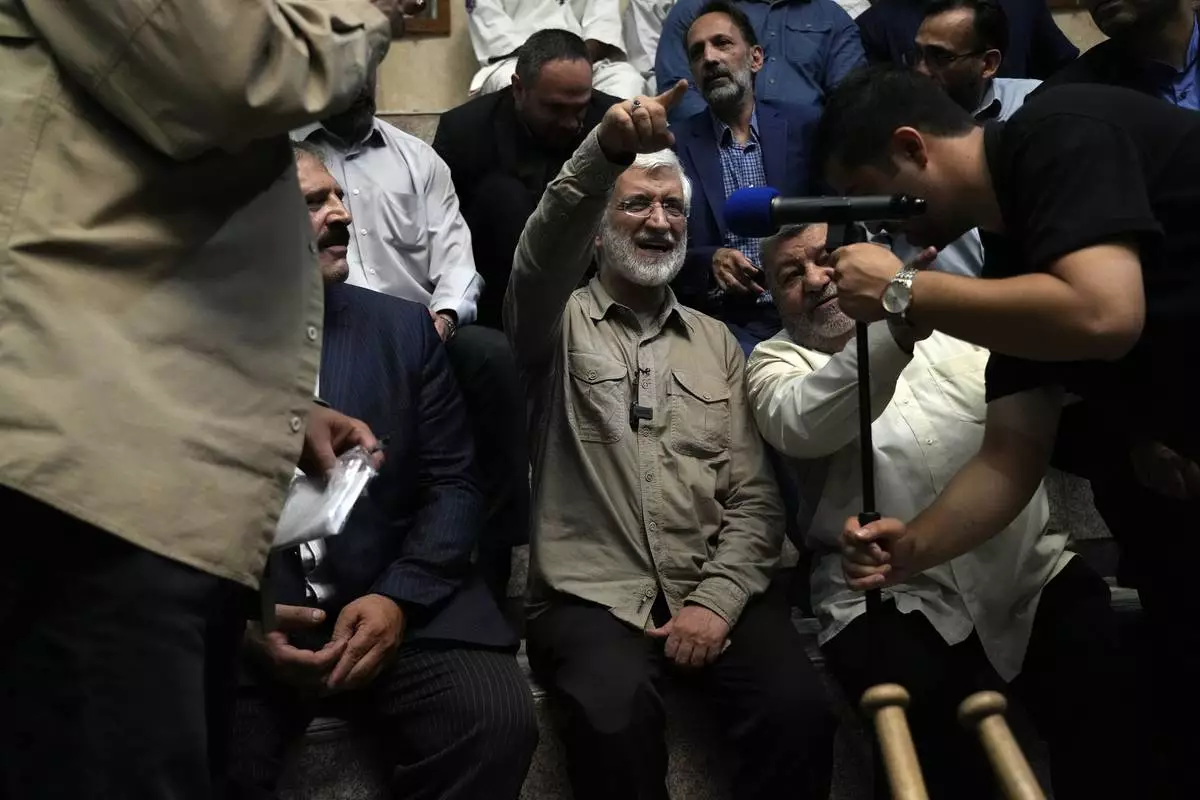
Candidate for the presidential election Saeed Jalili, a former Iranian top nuclear negotiator, gestures in a meeting with a group of athlete supporters at a sport hall in his campaigns in Tehran, Iran, Sunday, June 30, 2024. Comments suggesting that Iran's reformist presidential candidate could increase government-set gasoline prices have raised fears of a repeat of nationwide protests. (AP Photo/Vahid Salemi)
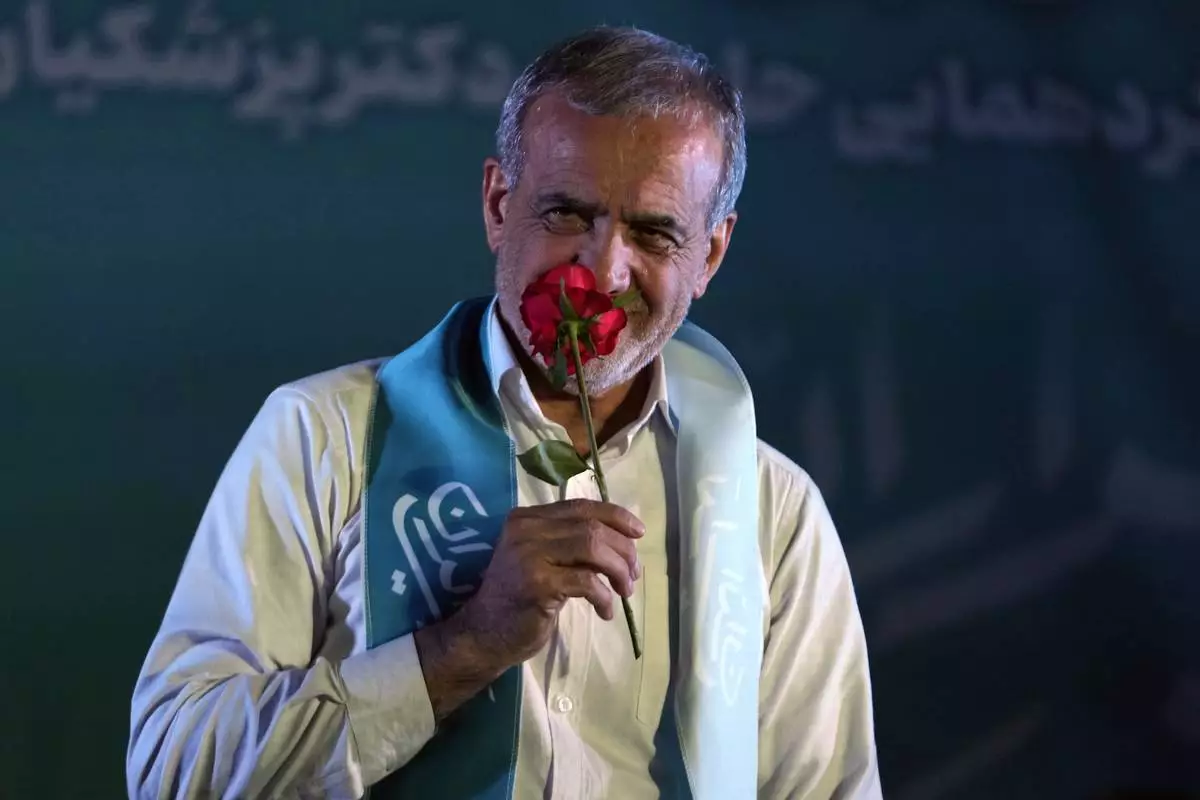
Reformist candidate for the Iran's presidential election Masoud Pezeshkian smells a flower during a campaign rally in Tehran, Iran, Wednesday, July 3, 2024. Comments suggesting that Iran's reformist presidential candidate could increase government-set gasoline prices have raised fears of a repeat of nationwide protests. (AP Photo/Vahid Salemi)
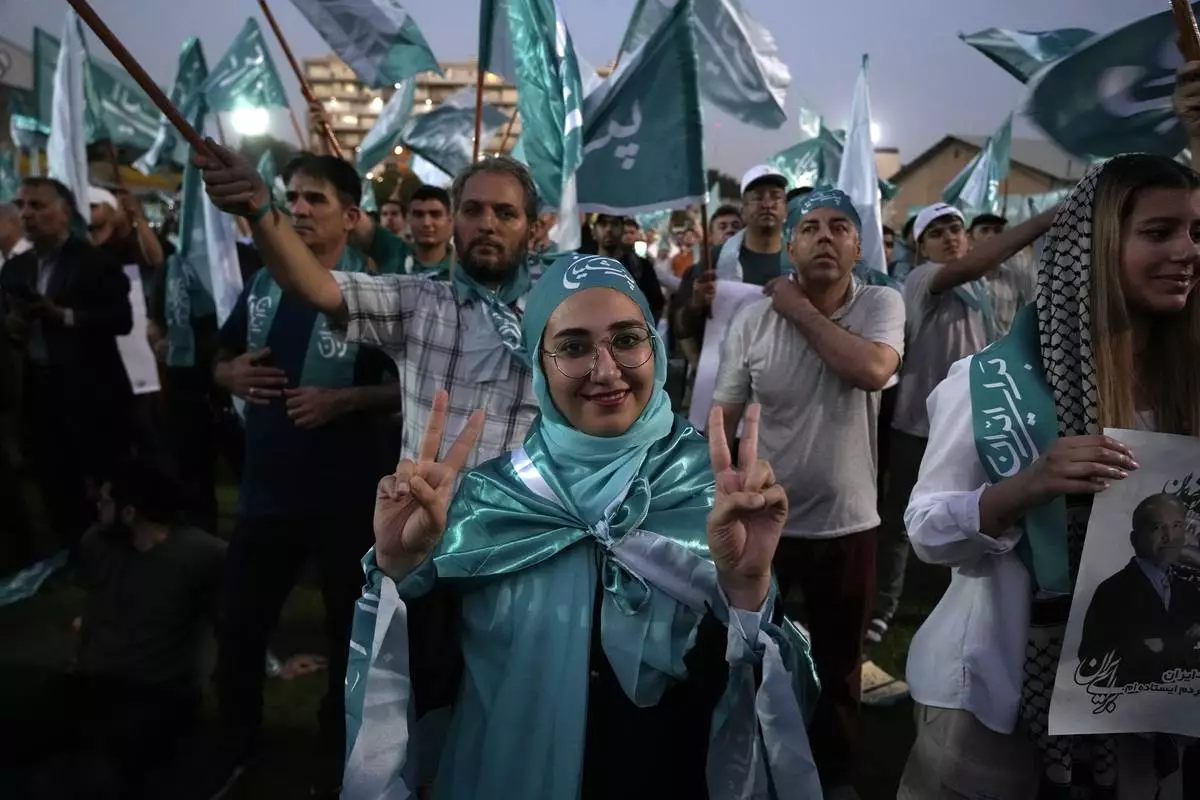
A supporter of the reformist candidate for the Iran's presidential election Masoud Pezeshkian flashes the victory sign during a campaign rally in Tehran, Iran, Wednesday, July 3, 2024. Comments suggesting that Iran's reformist presidential candidate could increase government-set gasoline prices have raised fears of a repeat of nationwide protests. (AP Photo/Vahid Salemi)


